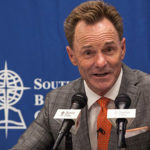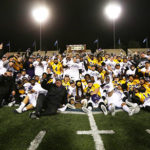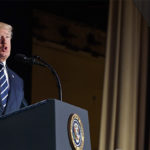WASHINGTON (ABP) — President Obama has followed through on his promise to declare May 6 the National Day of Prayer despite a controversial April 15 ruling by a federal judge who said the government encouraging its citizens to pray violates the First Amendment.
“We are blessed to live in a nation that counts freedom of conscience and free exercise of religion among its most fundamental principles, thereby ensuring that all people of goodwill may hold and practice their beliefs according to the dictates of their consciences,” Obama said, in an April 30 proclamation declaring the day for 2010. “Prayer has been a sustaining way for many Americans of diverse faiths to express their most cherished beliefs, and thus we have long deemed it fitting and proper to publicly recognize the importance of prayer on this day across the nation.”
Presidents since at least 1952, when Congress declared a prayer day, have issued such proclamations noting the observation, extolling the role of prayer in many Americans’ lives and encouraging prayer for the nation as well as others in the world. In 1988, Congress fixed the date of the observance as the first Thursday in May.
But on April 15, U.S. District Judge Barbara Crabb of Wisconsin agreed with plaintiffs who had sued to put an end to the federal government’s involvement in the event, which is marked by ceremonies both public and private around the country.
“It bears emphasizing that a conclusion that the [First Amendment’s] Establishment Clause prohibits the government from endorsing a religious exercise is not a judgment on the value of prayer or the millions of Americans who believe in its power,” Crabb wrote in a 66-page opinion. “No one can doubt the important role that prayer plays in the spiritual life of a believer. However, recognizing the importance of prayer to many people does not mean that the government may enact a statute in support of it, any more than the government may encourage citizens to fast during the month of Ramadan, attend a synagogue, purify themselves in a sweat lodge or practice rune magic.”
Crabb stayed enforcement of her ruling until all appeals of it have been exhausted, however. Obama’s Justice Department announced April 22 that it would appeal the decision.
While some religious-liberty advocates have praised Crabb's decision, others have said acknowledging the role that prayer has historically played for many Americans does not rise to the level of violating the First Amendment’s ban on government establishment of religion.
Americans United for Separation of Church and State and the Interfaith Alliance both said the decision was well-reasoned and sensitive to the true nature of uncoerced faith. The Alliance Defense Fund and American Center for Law and Justice criticized the decision and said it would likely be overturned.
The Baptist Joint Committee for Religious Liberty did not take an official stance on the ruling, but the Washington-based religious-liberty group has criticized the National Day of Prayer before. BJC Executive Director called the event misguided last year.
Sign up for our weekly edition and get all our headlines in your inbox on Thursdays
"The problem with the National Day of Prayer is that it is an official act of the government urging citizens to engage in a religious exercise," Walker said. "A day of prayer is more appropriately called for by pastors, rabbis and imams among us — not civil magistrates, Congress or even an American president."
A representative of the Southern Baptist Convention's Ethics and Religious Liberty Commission, however, lambasted the ruling.
"[W]e are deeply offended by the fact that this judge would decide that the National Day of Prayer actually establishes religion," said Barrett Duke, the agency's vice president, according to an ERLC press release. "I think her understanding of the establishment of religion exceeds the founding fathers’ understanding of what that means."
The National Day of Prayer historically was a broadly ecumenical enterprise, but the event has become controversial in recent years. Some moderate and liberal religious leaders have criticized the National Day of Prayer Task Force, a conservative evangelical group led by the wife of Christian broadcaster James Dobson that serves as the event’s unofficial sponsor, for hosting religiously exclusive prayer events in state capitols and municipal facilities around the country.
Some conservatives, meanwhile, criticized Obama last year for his decision not to mark the day as his predecessor did, with elaborate and highly publicized prayer events at the White House. Obama instead observed the day privately.
–Robert Marus is managing editor and Washington bureau chief for Associated Baptist Press.
Previous ABP stories:
Obama administration to appeal ruling against National Day of Prayer (4/22/2010)
Judge rules National Day of Prayer unconstitutional (4/16/2010)
Conservative ‘National Day of Prayer’ supporters upset over Obama snub (5/7/2009)














We seek to connect God’s story and God’s people around the world. To learn more about God’s story, click here.
Send comments and feedback to Eric Black, our editor. For comments to be published, please specify “letter to the editor.” Maximum length for publication is 300 words.